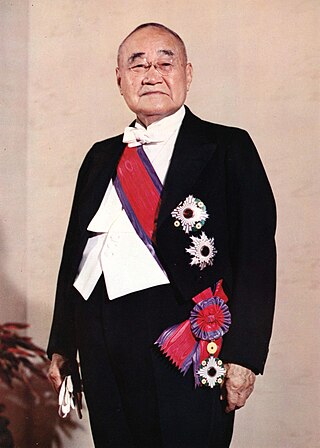Minister of War Production (1942)
| Portrait | Name | Term of office | Political party | ||
|---|---|---|---|---|---|
 | Max Aitken The Lord Beaverbrook | 4 February 1942 | 19 February 1942 | Conservative | |
The Minister of Production was a British government position that existed during the Second World War, heading the Ministry of Production.
Initially the post was called "Minister of War Production" when it was created in February 1942, but the first Minister, Lord Beaverbrook, resigned after only two weeks in office. A month later upon the appointment of the second holder the post was titled "Minister of Production".
| Portrait | Name | Term of office | Political party | ||
|---|---|---|---|---|---|
 | Max Aitken The Lord Beaverbrook | 4 February 1942 | 19 February 1942 | Conservative | |
| Portrait | Name | Term of office | Political party | ||
|---|---|---|---|---|---|
 | Oliver Lyttelton MP for Aldershot | 12 March 1942 | 27 July 1945 | Conservative | |

Total war is a type of warfare that includes any and all resources and infrastructure as legitimate military targets, mobilises all of the resources of society to fight the war, and gives priority to warfare over non-combatant needs.

The Cabinet of the United Kingdom is the senior decision-making body of the Government of the United Kingdom. A committee of the Privy Council, it is chaired by the Prime Minister and its members include Secretaries of State and senior Ministers of State. Members of the Cabinet are appointed by the Prime Minister and are by convention chosen from members of the two houses of the Parliament of the United Kingdom, the House of Commons and the House of Lords.

Shigeru Yoshida was a Japanese diplomat and politician who served as Prime Minister of Japan from 1946 to 1947 and from 1948 to 1954, serving through most of the American occupation following the Pacific War. He played a significant part in determining the course for post-war Japan by forging a strong relationship with the United States and pursuing economic recovery.

Alexandre Millerand was a French politician. He was Prime Minister of France from 20 January to 23 September 1920 and President of France from 23 September 1920 to 11 June 1924. His participation in Waldeck-Rousseau's cabinet at the start of the 20th century, alongside the Marquis de Galliffet, who had directed the repression of the 1871 Paris Commune, sparked a debate in the French Section of the Workers' International (SFIO) and in the Second International about the participation of socialists in bourgeois governments.
The 2003 invasion of Iraq began on March 20. On March 18, US President George W. Bush had set a deadline for the ruler of Iraq, Saddam Hussein, and his two sons, Uday and Qusay, to leave the country or face military action. By the time of the ultimatum, political and military preparations for the invasion were well advanced.

Georges-Augustin Bidault was a French politician. During World War II, he was active in the French Resistance. After the war, he served as foreign minister and premier on several occasions. He apparently joined the Organisation armée secrète; however he always denied his involvement.

The secretary of state for defence, also known as the defence secretary, is a secretary of state in the Government of the United Kingdom, with responsibility for the Ministry of Defence. As a senior minister, the incumbent is a member of the Cabinet of the United Kingdom.

The ministerfor Defence, also known as the Defence minister, is the minister of state of the Commonwealth of Australia charged with overseeing the organisation, implementation, and formulation of strategic policy in defence and military matters as the head of the Department of Defence. The Defence minister directs the government’s approach to the Australian Defence Organisation and the Australian Defence Force. The current Defence minister is Richard Marles, who is concurrently serving as deputy prime minister of Australia, he was selected by Prime Minister Anthony Albanese in May 2022 following the 2022 Australian federal election.

Sir Howard Kingsley Wood was a British Conservative politician. The son of a Wesleyan Methodist minister, he qualified as a solicitor, and successfully specialised in industrial insurance. He became a member of the London County Council and then a Member of Parliament.

Christopher Addison, 1st Viscount Addison,, was a British medical doctor and politician. A member of the Liberal and Labour parties, he served as Minister of Munitions during the First World War and was later Minister of Health under David Lloyd George and Leader of the House of Lords under Clement Attlee.
The Minister of Aircraft Production was, from 1940 to 1945, the British government minister at the Ministry of Aircraft Production, one of the specialised supply ministries set up by the British Government during World War II. It was responsible for aircraft production for the British forces, primarily the Royal Air Force, but also the Fleet Air Arm.
The Minister of Supply was the minister in the British Government responsible for the Ministry of Supply, which existed to co-ordinate the supply of equipment to the national armed forces. The position was campaigned for by many sceptics of the foreign policy of the National Government in the 1930s before ultimately being created in 1939.

The Shōwa Financial Crisis was a financial panic in 1927, during the first year of the reign of Emperor Hirohito of Japan, and was a foretaste of the Great Depression. It brought down the government of Prime Minister Wakatsuki Reijirō and led to the domination of the zaibatsu over the Japanese banking industry.

The post of Minister of Defence was responsible for co-ordination of defence and security from its creation in 1940 until its abolition in 1964. The post was a Cabinet-level post and generally ranked above the three service ministers, some of whom, however, continued to also serve in Cabinet.

The Japanese economic miracle refers to Japan's record period of economic growth between the post-World War II era and the end of the Cold War. During the economic boom, Japan rapidly became the world's second-largest economy. By the 1990s, Japan's population demographics had begun to stagnate, and the workforce was no longer expanding as quickly as it had in the previous decades despite per-worker productivity remaining high.

The Ministry of Defence (MoD) is charged with coordinating and supervising all agencies and functions of the government relating directly to national security and the Indian Armed Forces. The President of India is the ceremonial commander-in-chief of the armed forces of the country. The Ministry of Defence provides policy framework and resources to the armed forces to discharge their responsibility in the context of the defence of the country. The Indian Armed Forces and Indian Coast Guard under the Ministry of Defence are primarily responsible for ensuring the territorial integrity of India.

The Churchill war ministry was the United Kingdom's coalition government for most of the Second World War from 10 May 1940 to 23 May 1945. It was led by Winston Churchill, who was appointed prime minister of the United Kingdom by King George VI following the resignation of Neville Chamberlain in the aftermath of the Norway Debate.

Although most Australian civilians lived far from the front line, the Australian home front during World War II played a significant role in the Allied victory and led to permanent changes to Australian society.
Reda Mahmoud Hafez Mohamed was the commander of the Egyptian Air Force. Mohamed was also the minister for military production in the interim cabinet led by Prime Minister Hazem Al Beblawi.
The Ministry of Commerce and Industry was a cabinet-level ministry in the government of the Empire of Japan from 1925 to 1947. It was created from the Ministry of Agriculture and Commerce, and was briefly merged with the Ministry of Agriculture and Forestry to reestablish that Ministry during World War II.